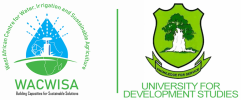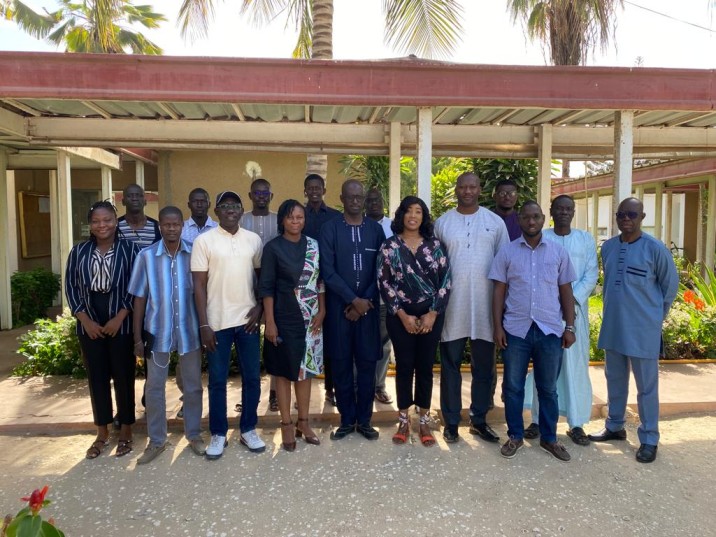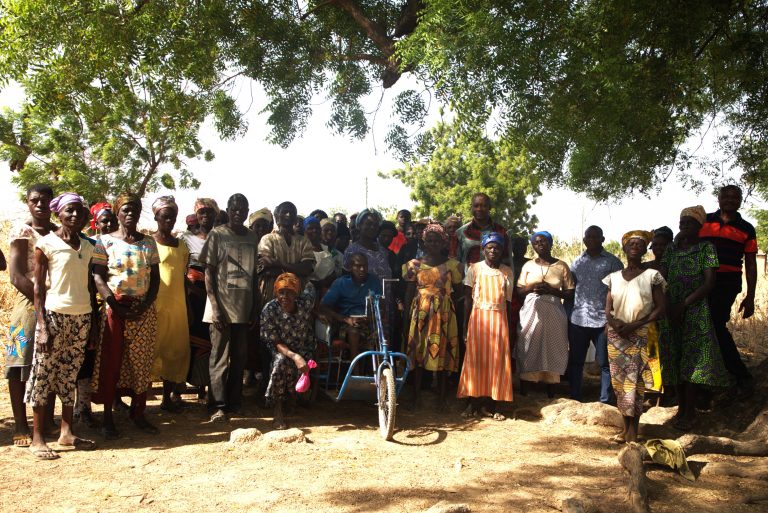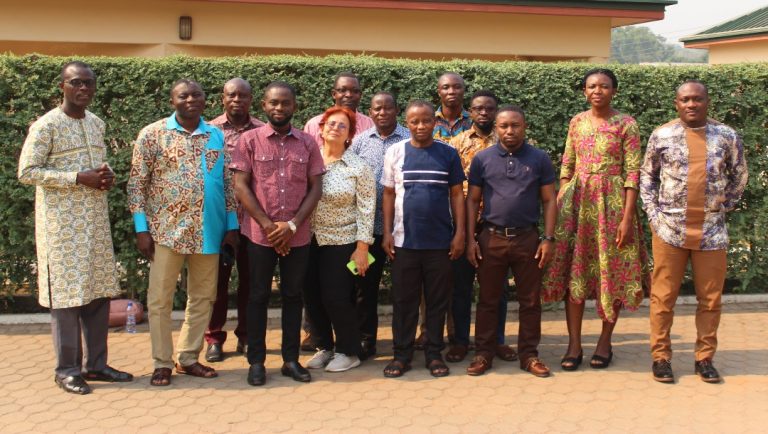The Agroecological Solutions for Resilient Farming in West Africa (CIRAWA) led by Fundacion Cartif, Spain with a 6.9 million Euros funding support from the European Union (EU) and implemented jointly with 14 partners, including the West African Centre for Water, Irrigation and Sustainable Agriculture of the University for Development Studies (WACWISA-UDS) kicked-off in Spain 2023. CIRAWA points to agriculture as one of the key focus areas of the partnership between the European Union (EU) and the African Union (AU) with the EU’s focus being on facilitating a green transition according to its Green Deal (GD). The four-and-half (4½) year project started in January 2023 to end in June 2027 and has partners from public/governmental (universities and research institutions) and not-for-profit/non-governmental organisations from West Africa (Cape Verde, Ghana, Senegal and The Gambia), Spain, France and Belgium.
To kick start the activities under the Work Package 2 led by WACWISA-UDS, baseline and stakeholder engagement activities are being undertaken in Cape Verde, Ghana, Senegal and The Gambia. In a welcome address, The Director of Senegalese Institute of Agricultural Research (ISRA), St Louis, Dr. Omar Ndaw Faye noted that the project was very important as its focus is within the research areas of irrigated and lowland agriculture which focuses on arable crop, vegetable, animal and fish culture. He expressed ISRA’s excitement in joining the team of researchers implementing the CIRAWA project. He intimated ISRA’s availability and role in ensuring a successful project implementation.
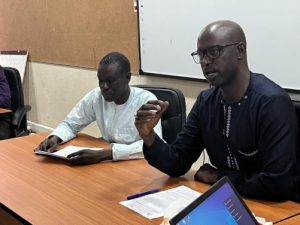 The project lead for CIRAWA in ISRA, Dr. Mamadou Sall noted that, ISRA is leading Work Package 5 which focuses on “Deployment and Evaluation of Optimal Combination of Agroecological Strategies and Techniques”. He mentioned that preparations are complete to ensure successful field data collection in Senegal for WP2 which is led by WACWISA-UDS and includes Focus Group Discussions (FGDs) as well as household data collection from household heads (HHHs) and women in households (WiHHs).
The project lead for CIRAWA in ISRA, Dr. Mamadou Sall noted that, ISRA is leading Work Package 5 which focuses on “Deployment and Evaluation of Optimal Combination of Agroecological Strategies and Techniques”. He mentioned that preparations are complete to ensure successful field data collection in Senegal for WP2 which is led by WACWISA-UDS and includes Focus Group Discussions (FGDs) as well as household data collection from household heads (HHHs) and women in households (WiHHs).
In a brief presentation on CIRAWA, The Ghana Regional Coordinator and Work Package 2 (WP 2) Lead, Prof. Saa Dittoh indicated that WACWISA-UDS, Ghana is leading the Ghana team and WP 2 which focuses on “Farming Systems Needs Evaluation and Definition of Agroecological Strategies and Techniques”. The CIRAWA research areas/sites were mentioned as Santo Antão and Maio (Cape Verde); Central Gonja District and Nabdam District (Ghana); Senegal River Valley and Central West Zone (Senegal); and North West Region and Central River Region (The Gambia).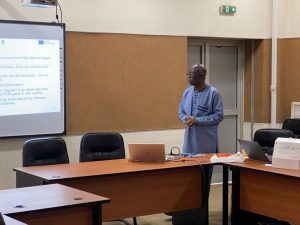
He mentioned that, the baseline and stakeholder engagement activities for Ghana took place between 20th and 30th March 2023 whilst the same activities for Senegal and The Gambia are being undertaken concurrently in the two countries from 24th April to 4th May 2023. Prof. Dittoh also emphasized the importance of the project especially as it is focusing on unearthing useful agroecological interventions to boost food productions for enhanced nutrition. He subsequently took participants through techniques for effective field data collection and the use of digital tools in field data collection.
Dr. Dzigbodi A. Doke, a Co-Principal Investigator of the Ghana Team from WACWISA-UDS, Ghana gave a brief background, objectives, implementation sites and the methodology being used in the multi-country implementation of CIRAWA. Dr. Doke emphasized the need to learn from farmers on their needs and also what works for them.
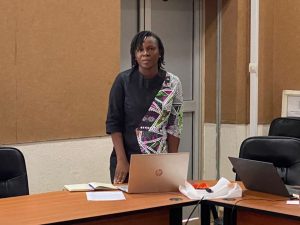 She indicated that CIRAWA is working around seven (7) objectives and ultimately will strengthen the capacities, co-creation and collaboration in scientific research especially between the EU-Africa partners in innovative approaches to the implementation of agroecology in Africa. She noted the four (4) project pillars as: effective involvement of actors of agri-food sector; identification, development and experimental evaluation of the agroecological practices and techniques; support agri-food actors in implementing the most suitable combination of agro-ecological strategies and practices and; expand the benefits of implemented agroecological strategies.She concluded by noting that CIRAWA will unlock the potential of the agroecology in West Africa by building on existing indigenous and scientific knowledge to improve food and nutrition security, livelihoods and planetary health while tackling the climate change and environmental impact of agricultural practices.
She indicated that CIRAWA is working around seven (7) objectives and ultimately will strengthen the capacities, co-creation and collaboration in scientific research especially between the EU-Africa partners in innovative approaches to the implementation of agroecology in Africa. She noted the four (4) project pillars as: effective involvement of actors of agri-food sector; identification, development and experimental evaluation of the agroecological practices and techniques; support agri-food actors in implementing the most suitable combination of agro-ecological strategies and practices and; expand the benefits of implemented agroecological strategies.She concluded by noting that CIRAWA will unlock the potential of the agroecology in West Africa by building on existing indigenous and scientific knowledge to improve food and nutrition security, livelihoods and planetary health while tackling the climate change and environmental impact of agricultural practices.
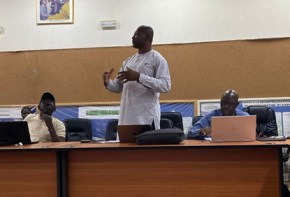 In a brief remark by a Research Team member of CIRAWA Project under work package 2 and Director of the African Centre of Excellence, WACWISA-UDS, Prof. Felix K. Abagale traced the history on the establishment of the UDS dating back to 1992 and WACWISA in 2019. Also as the Pro-Vice Chancelor of the University for Development Studies, Prof. Abagale presented the focus areas of academics and research of the University and mentioned that WACWISA-UDS focuses on applied research and capacity building in irrigation, water resources, sustainable agriculture, food and nutrition security and climate change. He noted the effect of climate change on Africa farmers especially the case of rising sea water levels, erratic rainfall, aridity, fluctuating groundwater levels, etc across the Africa continent. He mentioned that green revolution manifested as extensive use of imported seeds, fertilizer, pesticides and machinery has adversely affected the agroecologies of most areas especially in Africa and has contributed to deepening poverty amongst small scale farmers. Prof. Abagale made known that the CIRAWA project will contribute to bridging the gap that exist between traditional or indigenous knowledge and that of scientific knowledge and thus reduce the effect of climate change on agroecologies and the farm families.
In a brief remark by a Research Team member of CIRAWA Project under work package 2 and Director of the African Centre of Excellence, WACWISA-UDS, Prof. Felix K. Abagale traced the history on the establishment of the UDS dating back to 1992 and WACWISA in 2019. Also as the Pro-Vice Chancelor of the University for Development Studies, Prof. Abagale presented the focus areas of academics and research of the University and mentioned that WACWISA-UDS focuses on applied research and capacity building in irrigation, water resources, sustainable agriculture, food and nutrition security and climate change. He noted the effect of climate change on Africa farmers especially the case of rising sea water levels, erratic rainfall, aridity, fluctuating groundwater levels, etc across the Africa continent. He mentioned that green revolution manifested as extensive use of imported seeds, fertilizer, pesticides and machinery has adversely affected the agroecologies of most areas especially in Africa and has contributed to deepening poverty amongst small scale farmers. Prof. Abagale made known that the CIRAWA project will contribute to bridging the gap that exist between traditional or indigenous knowledge and that of scientific knowledge and thus reduce the effect of climate change on agroecologies and the farm families.
